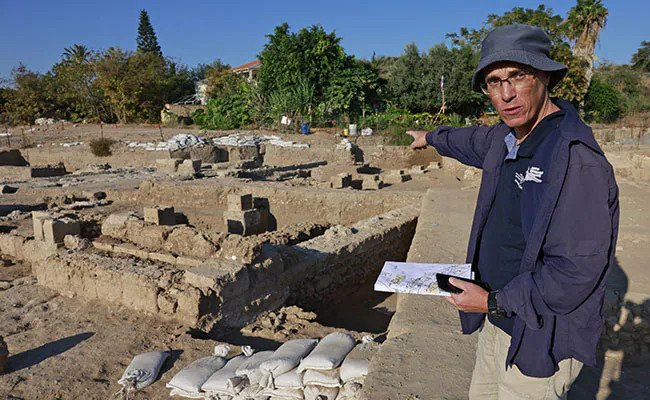Israel winery: 1,500-year-old Byzantine wine complex found
A 1,500-year-old wine-making complex, said to have been the world’s largest at the time, has been discovered in Israel, archaeologists say.
Five presses were unearthed at the huge Byzantine-era winery at Yavne, south of Tel Aviv, which is estimated to have produced two million litres a year.
After a sophisticated production process, it was exported around the Mediterranean.

Those working at the site said they were surprised by its size. There are plans to make the complex a visitor attraction once preservation work is completed.
The site contains five wine presses spread over a square kilometre (0.4 sq miles), warehouses for ageing and bottling the wine, and kilns for firing the jars used for storing it.
The end product was known as Gaza and Ashkelon wine, after the ports through which it was exported to Europe, North Africa and Asia Minor.

It had a reputation for quality throughout the Mediterranean region, but at that time wine was also a staple for many.
“This was a major source of nutrition and this was a safe drink because the water was often contaminated,” said Jon Seligman, one of the excavation’s directors.


